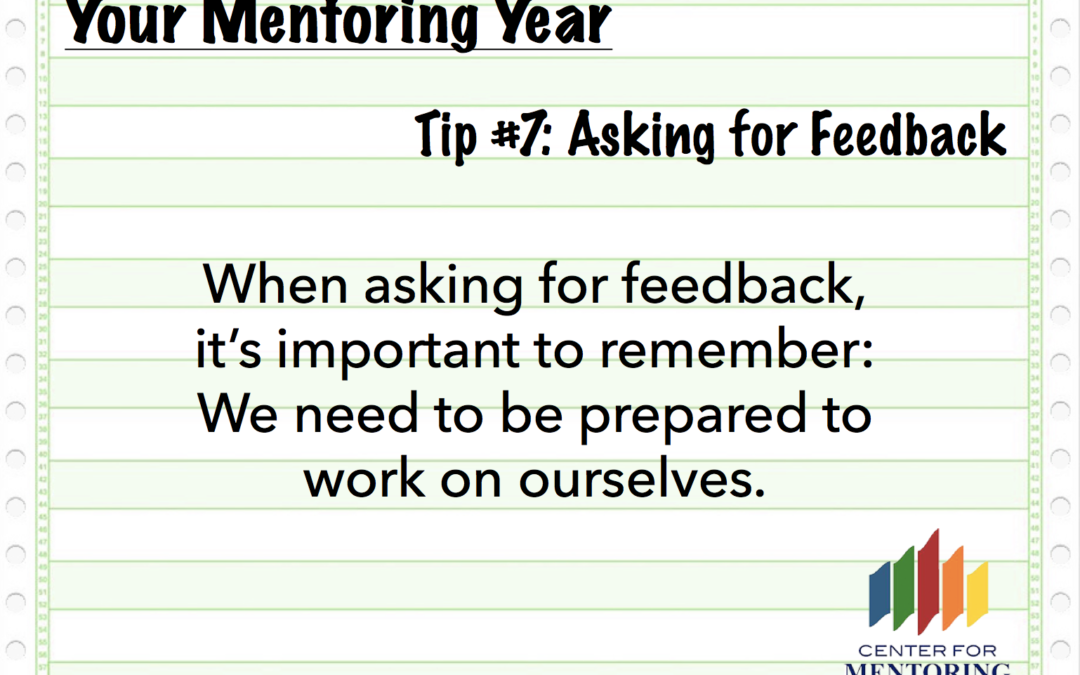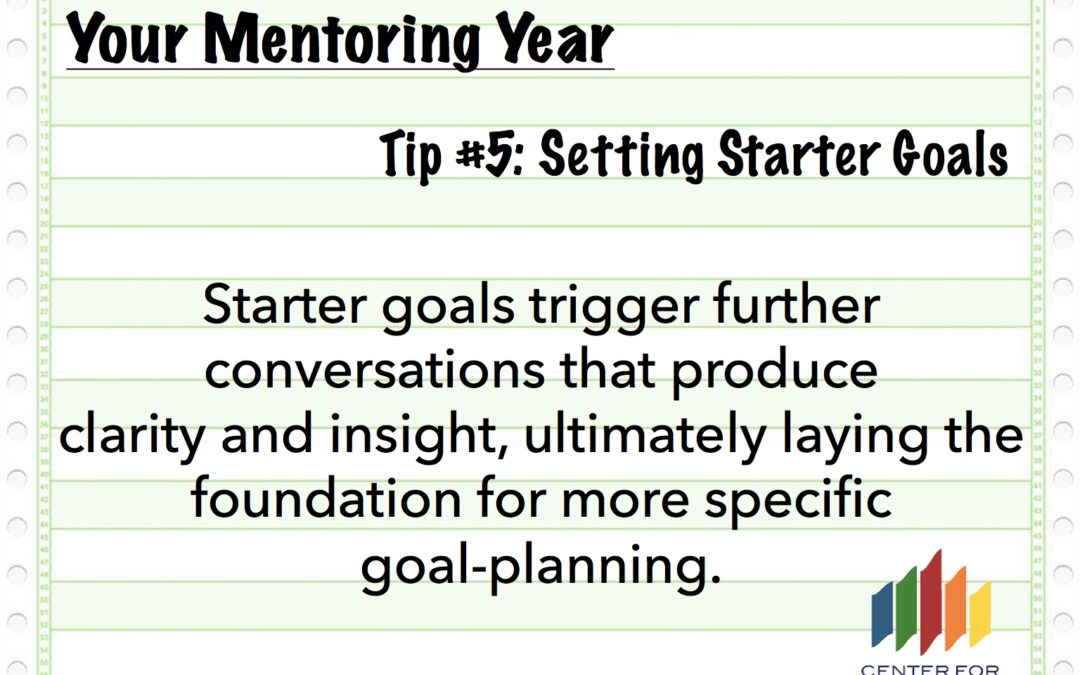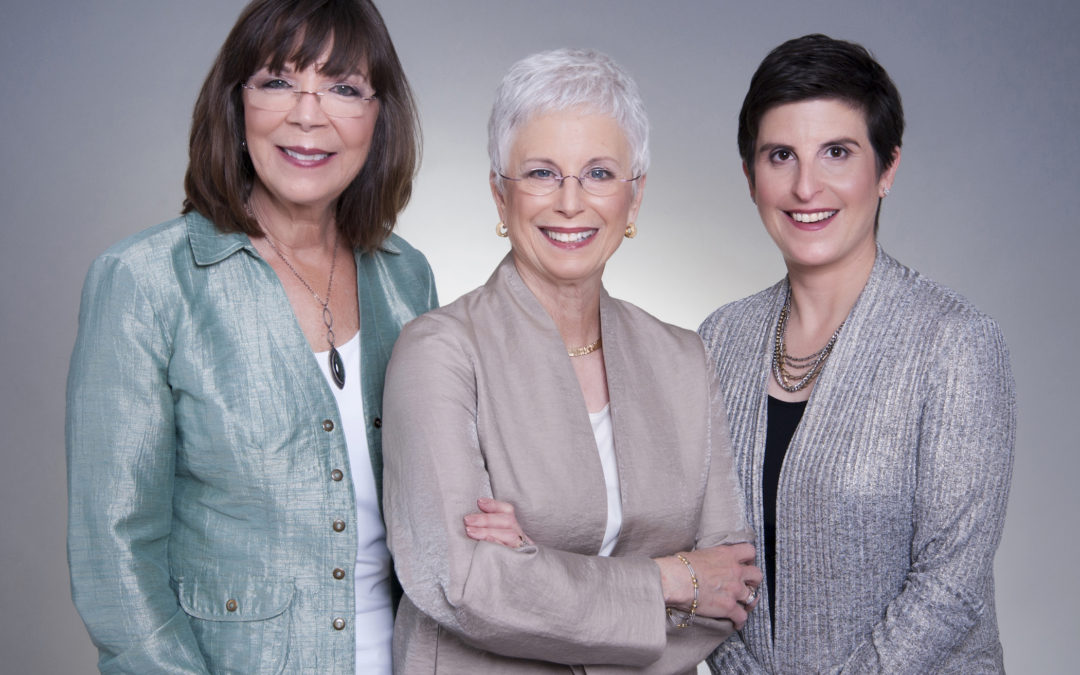
by Center for Mentoring Excellence | Oct 12, 2017 | Goal Setting Conversation, Growth and Development, Making Mentoring Work For You, Mentoring Communication, Mentoring Questions, Mentoring Relationships, Mentoring Training, Supporting Mentors and Mentees
Imagine this scenario:
You are hidden in the cubicle next to your supervisor when a colleague drops by to ask her about your performance and contribution to her team. In your dream scenario, your supervisor raves about your work ethic, your analytic skills, your strong relationships with co-workers and members of the leadership team.
That, of course, is what you would like to hear! But in reality, do you have a real handle on what others would say about you? Do you know how your mentor might answer that question?
Managers wish employees would come to them to ask how are they are doing, and what specific areas they should work on. Mentors feel the same way. It’s a lot easier and more comfortable to provide feedback when a mentee seeks it out and is open to working on him or herself. While we all seek positive feedback, we also need to be open to hearing a frank assessment of what holds us back or gets in our way. And, most importantly, we need to be prepared to work on ourselves once an area has been identified.
Here are 5 tips in asking for feedback from your mentoring partner:
- Be clear and specific about what feedback you’re looking for. First, start on a positive note by asking about areas of strength. Then, ask about two areas your mentor feels you need to work on. (Two keeps it limited and doable.)
- Check for understanding (especially around constructive feedback) without getting defensive. If you are unaware of the issues your mentor is raising, ask for an example of where you fell short (again, without being defensive or aggressive). Make sure you agree on what behaviors would help correct deficiencies.
- End the conversation on a positive note. Thank your mentoring partner for their feedback.
- Take time to reflect on what you heard. Think about how the feedback you received might be impacting other areas of your personal and professional life. Set aside any negative feelings you have about what you heard by remembering that this feedback was designed to help you grow and develop.
- Address the areas that have been raised by taking action. Become more conscious about your behaviors and how they affect others and your work. Check in (but not too soon) with your mentor to determine if what you are doing differently is making a difference.
How do you like to ask for feedback?

by Center for Mentoring Excellence | Sep 5, 2017 | Goal Setting Conversation, Growth and Development, Making Mentoring Work For You, Mentoring Communication, Mentoring Questions, Mentoring Relationships, Mentoring Training, Supporting Mentors and Mentees
Last month, we offered some tips about how to set starter goals. As we noted then, the key to exploring starter goals is to get to the heart of the learning need and create specificity around your desired outcome. This month, let’s discuss how to turn starter goals into the kind of goals that help mentees achieve their mentoring objectives — we call these goals “SMART goals.”
SMART goals are goals that are: Specific, Measurable, Action-Oriented, Realistic and Time-bound.
How to create a SMART goal:
- Ask questions to really understand your mentee’s desired outcome. The best way to create SMART mentoring goals is through conversation. Together with your mentee, take a look at the starter goal you created. Make sure you are clear on what success looks like. Be as specific as possible, and drill down until you come up with a way to measure success. Ask: “How will we know if you achieved it?” “What will success look like?” “What will be different when you achieve this goal?”
- Encourage action rather than contemplation. Mentors help mentees create action-focused goals by reminding them that clarity comes from engagement, not thought. Too often we see mentees set goals that start with “I will think about” or “I will explore” or “I will learn.” SMART goals have action words and should answer the question: “What will you DO?”
- Provide a reality check. SMART goals are realistic. Help your mentees set realistic milestones that link to a larger goal. That will keep them motivated and create enthusiasm for further progress. Ask “What are the obstacles to your success?” and “On a scale of 1 to 10, how confident are you that you can overcome those obstacles?” For anything less than an 8, work with your mentee to identify and anticipate obstacles. If obstacles can be overcome, create learning around that. If they cannot, create a more realistic goal.
- Set a deadline. Too often, development goals languish because they feel important but not urgent. Having time-bound goals helps measure progress, create a sense of urgency, generate momentum and provide natural check-in points along the way. Set a date by which the goal should be achieved, and continually track progress towards that date. It’s perfectly appropriate — even, at times, encouraged — for a mentee to choose a lofty goal that will really propel them forward. But unless that goal is broken down into smaller steps, your mentee may get fatigued or burned out. Set timelines for milestones along the way.
How have you used SMART goals in your mentoring relationship?

by Center for Mentoring Excellence | Aug 7, 2017 | Facilitating Learning, Goal Setting Conversation, Growth and Development, Making Mentoring Work For You, Mentoring Communication, Mentoring Questions, Mentoring Relationships, Supporting Mentors and Mentees
The goal-setting conversation is an iterative process that usually begins with “starter goals.” (more…)

by Center for Mentoring Excellence | Jun 1, 2017 | Goal Setting Conversation, Growth and Development, Making Mentoring Work For You, Mentoring Communication, Mentoring Questions, Mentoring Relationships, Supporting Mentors and Mentees
Lois, Lory and Lisa share many things in common when it comes to mentoring, but it’s their individual approach and unique outlook that make them such a successful team. This spirit of individuality and their complementary skills were highlighted in a recent interview, where they were asked about their passion for mentoring, what they’ve learned from mentors, and their advice to new mentors.
Here’s what they had to say:
Why are you passionate about mentoring?
LOIS: My personal mentoring stories are many. I marvel at how my mentors raised the bar for me, led by example, pushed me beyond my personally defined limits, encouraged me to enlarge my thinking, and believed in me even when I was not sure of myself. I am grateful for their time, their stories and their commitment to my growth. And, while most of my experiences were positive, there were a few that could have gone better. I had no clue then that there were things I could have done, could have said, could have asked, and could have tried that would have allowed me to make the most of my mentoring relationships. I didn’t realize that as a mentee I had an instrumental role to play in shaping the relationship and defining the outcomes of the relationship. So for me, mentoring is both personal and professional. I pay it back, every day and in every way that I can. My passion is reignited every time I work with my many diverse clients and I see how mentoring has helped them change, both themselves and the world around them.
LORY: I’ve interviewed hundreds of mentors and mentees over the past 18 years and heard their stories about breakthroughs, renewed confidence, and shifts in thinking. Their stories have inspired me. I get energized listening to people talk about their renewed sense of energy and commitment to their work because of the support and positive feedback they’ve received from mentors. I recently spoke to a mentee who told me how his mentor helped him see why certain stereotypical beliefs were holding him back and undermining his success at work. When he was finally able to turn his behaviors around, the stress and tension disappeared and new opportunities opened up. It’s exciting to see the transformative power of mentoring play itself out, time and time again.
LISA: I believe the best way to make a difference in the workplace is to help employees feel connected, valued and heard. I think that mentoring is the ideal way to accomplish this, because it creates a safe and powerful space for a mentee to gain perspective, focus on his/her own needs and ask questions that broaden their perspectives of themselves, their teams, and their organization.
What have you learned from your mentors?
LOIS: I’ve learned to listen to my own voice, to think outside the box, to let my creativity shine through, and to never give up. And that’s only the start of it. I’ve learned from observing my mentors in action, how they model the art and practice of being a reflective practitioner and asking deep, penetrating questions.
LORY: My first mentor believed that I had the skills and talent to be successful. He believed in my abilities more than I did. He inspired me to take risks and take on assignments that I would never have done without his support. I learned to believe in myself and see myself as a capable leader. My mentor also helped me understand how to think strategically and understand the politics of the institution. In a sense, he helped me see how the chess pieces moved. I learned to think several steps ahead, rather than jump in and make decisions on the fly.
LISA: I’ve learned to slow down, and to step back and think about the impact my role can have on the organization as a whole. This has helped me be more strategic and focus my own development so that I can have the greatest impact. I’ve learned to pay attention to what lights me up. I’ve learned to appreciate the positive feedback I get and to process difficult feedback constructively and in the proper context.I’ve learned a ton about the importance of developing relationships with people who believe in me and to nurture those relationships.



What are the top 3 things you’d like a new mentor to know?
LOIS:
- Pay attention to your intuition. Your gut feeling is more often right than wrong.
- Don’t be afraid of the silence. Silence allows a mentee to catch up, to process, and come up with new insights.
- You don’t need to know everything. A good question is the most powerful tool in your mentor’s toolkit.
LORY:
- Talk about your challenges and struggles with your mentee as well as your successes. It will make you more approachable and human.
- Believe in your mentees and let them know that you see their potential. They are doing the heavy lifting and your positivity helps them continue the effort.
- Push your mentee out of their comfort zone. It’s the only way they will reap real rewards.
LISA:
- Share your own experiences — the good stuff and the stuff that might not be so good. It makes a world of difference for mentees to know you are human and that you can bounce back from difficult experiences.
- Give honest but constructive feedback — and help the mentee turn it into something actionable. Mentees can make great gains if they get honest feedback from their mentors. It helps many mentees to have a space to talk about the best ways to improve.
- Check in on the relationship. If something the mentee is doing isn’t working for you, or is sabotaging their own progress, share it with them as soon as possible. Some of the greatest progress has come from mentoring relationships that started out rocky, but where the participants addresses issues openly, swiftly, and willingly.

by Center for Mentoring Excellence | May 16, 2017 | Facilitating Learning, Goal Setting Conversation, Growth and Development, Making Mentoring Work For You, Mentoring Communication, Mentoring Questions, Mentoring Relationships, Mentoring Training, Supporting Mentors and Mentees
Listening is an essential mentoring skill and, once again, it topped our Wheelhouse Mentoring Survey list as the number one attribute of a good mentor.
Thanks to the responses of our readers (like you!) we also collected the following additional characteristics of good listeners:
- Uses active listening.
- Provides a safe environment for a mentee to share and take risks.
- Demonstrates empathy.
- Picks up on all the subtle (or not so subtle) clues to tailor appropriate responses.
- Is nonjudgmental and has unconditional positive regard for their mentee.
- Keeps an open mind.
- Is truly, authentically interested in the development of their mentee.
- Encourages mentees to come up with solutions themselves by asking probing questions.
- Stays focused on their mentee.
- Possesses the humility to accept that they don’t know all the best ways of doing things.
- Remains fully present in the conversation.
- Listens and learns; doesn’t just share their expertise.

Here’s an example of how listening should work in a mentoring relationship, and why it’s so important:
Kasi wanted someone to listen and understand her concerns and challenges. Jonah, her mentor, got it and got her.
Kasi: “I feel like I’m stuck. I don’t see where I can go and grow in this organization. Maybe I need to go back to school and get an MBA.”
Jonah: “Feeling stuck is no fun. I think everyone feels that way at one time or another in their career. I know I’ve been there. I found, both for me and many others who have shared those feelings, it isn’t always the long range career path. Sometimes it is a short term lull — like what you are doing now doesn’t interest you anymore. Does that make sense?”
Kasi: “Yes it does, I don’t feel like I am working on interesting projects anymore. All the new projects seem to be going to others. I feel like I am being left behind.”
Jonah: “That, I know, is not a good feeling. When you see others get what appears to be the latest and greatest project, it can easily make you second guess yourself. I just want to remind you of what you told me before in our earlier conversations. And that is your supervisor values your work, and you are well-respected. So I don’t believe it has to do with your contribution. Have you talked to your supervisor about these feelings of yours and about a new assignment?”
Kasi: “I haven’t. I guess I had hoped I would be the natural go-to person when something new came up.”
Jonah: “Well, I am sure that might have been your hope, but I can tell you, as a supervisor, that, number one, I am not a mind reader. I don’t always know that someone wants a new assignment, and two, I do tend to rely on people like you who are responsible and can get the job done. I give them free reign to do their work and appreciate that I don’t have to watch over them. I guess this is a reminder for me, too. Not to take their contribution for granted.”
Kasi: “So you think I need to be speaking up more about what I need, not just put my head down and get the job done?”
Jonah: “I do. Let’s give it a try.”
Seems pretty straightforward, right? As you can see, Jonah is a mentor who listens. He refers back to previous conversations, showing he’s invested in Kasi. He also acknowledges what she’s feeling, listens to the words she’s using, and digs deeper into why she’s feeling the way she does.
What’s great about this example, too? It showcases several other top qualities listed in our survey — empathy, focus, nonjudgmental, etc. A truly great mentor combines these top qualities into an unforgettable experience for their mentees!
Key Takeaway: How well are you listening? Use the top 12 qualities in this post to help you benchmark your listening skills.

by Center for Mentoring Excellence | Apr 24, 2017 | Facilitating Learning, Goal Setting Conversation, Growth and Development, Mentoring Communication
Does this mentoring conversation sound familiar?
“When my mentee complains about her VP, I take a small breath. The normal me would start coaching, telling, suggesting, and problem solving. That’s what I am good at. But guess what? That’s not what she is looking for from me, nor does she really need it.
My mentee knows what she needs to do. What she is actually looking for is acknowledgement and support for approach and strategies. So, I’ve learned to don my facilitator hat and start the conversation by asking questions. And I listen. And I learn. I learn what she is thinking. I learn what frustrates her. I learn what she has already tried. I learn what has worked. And mostly I learn what a talented, perceptive, ambitious woman she is. I look for ways to applaud her efforts and her thinking. I hold up a mirror for her and sometimes help her tweak her idea. We both come away having learned something new, along with increased appreciation of our different points of view.”
Conversation should come easy to all of us, right? Wait. Not so fast. What often passes for conversation is sometimes something quite different: information sharing, transactions, question and answer, and even push-back.
Really good mentoring conversation is more about exploring and sharing, rather than telling and reporting. It’s about going deeper, not staying broad and skimming the surface. Good mentoring conversation connects us to one another.
Conversation matters because there is a lot at stake. At the Center for Mentoring Excellence we set high standards for mentoring conversations. We believe really good mentoring depends on a continuum of meaningful conversation. Mentoring partners engage in conversation to grow their relationship, identify learning goals, and work on mentee growth and development. So, you see, there is a lot riding on what you do.
Takeaway: Be brave enough to start a conversation that matters — because it does!












